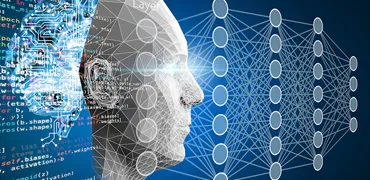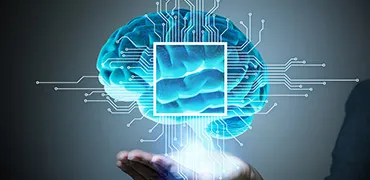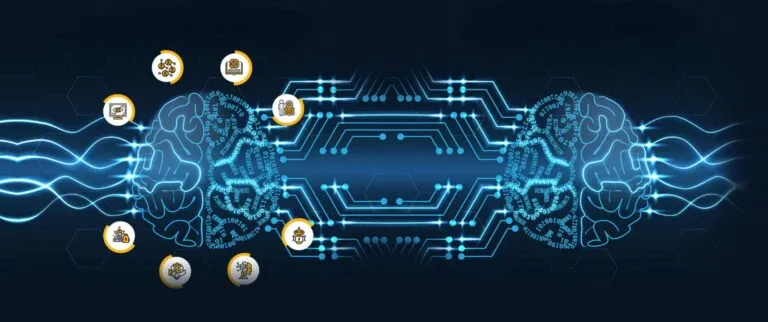An 8-Step Guide to Responsible AI: Key Ethical Issues and Steps to Overcome Them

- What are the Ethical Concerns Associated With AI and ML Technologies?
- How do AI and ML Algorithms Raise Moral Dilemmas?
- What Steps Can be Taken to Ensure the Responsible and Ethical Use of AI and ML?
- Are There Any Regulations or Guidelines in Place for Ethical AI and ML?
- How Can Businesses and Organizations Address Potential Biases in AI and ML Systems?
In just a short span of time, Artificial Intelligence (AI) and Machine Learning (ML) technologies have revolutionized numerous industries and reshaped the way we work and interact with the world. However, along with the many possibilities and opportunities these systems offer, there is a pressing concern: The ethical implications and responsible AI and ML usage. How can we use AI systems ethically? How can we make sure that these technologies are transparent and accountable?
In this article, we delve into responsible AI practices, the dilemmas associated with them, and existing regulations. Additionally, we provide practical steps to ensure responsible AI and ML usage. Read along to find out the ethical side of AI and discover ways to promote responsible practices.
What are the Ethical Concerns Associated With AI and ML Technologies?
 The global AI market, valued at $95.60 billion in 2021, is projected to reach $1,847.58 billion (nearly two trillion) by 2030. This widespread adoption of AI can be observed across industries such as health care, defense, education, media, and government. Considering the significant role of AI and ML in these sectors, where sensitive data is often involved, it is crucial to recognize that these technologies can bring both benefits and potential harm. Thus, as AI becomes more pervasive, it is important to be aware of the ethical challenges that it raises.
The global AI market, valued at $95.60 billion in 2021, is projected to reach $1,847.58 billion (nearly two trillion) by 2030. This widespread adoption of AI can be observed across industries such as health care, defense, education, media, and government. Considering the significant role of AI and ML in these sectors, where sensitive data is often involved, it is crucial to recognize that these technologies can bring both benefits and potential harm. Thus, as AI becomes more pervasive, it is important to be aware of the ethical challenges that it raises.
5 key ethical concerns associated with AI are:
- Automated decisions and AI bias
- Lack of accountability
- Privacy and data protection
- No transparency
- Misuse of AI
As AI technologies continue to evolve, it is crucial to be aware of these ethical concerns and proactively address them. Let’s, therefore, delve deeper into these issues to gain a better understanding before exploring the steps for responsible AI usage.
ALSO READ: 6 Key Areas Where AI-Powered Automation is Making a Significant Impact
How do AI and ML Algorithms Raise Moral Dilemmas?
1. Automated Decisions and AI Bias
Generative AI models are trained on data, and if the data is biased, the AI system will also be biased. Thus, the models themselves can exhibit bias, which can manifest in the output they generate. Additionally, this bias leads to discriminatory outcomes in decision-making processes. For example, biased facial recognition algorithms may misidentify individuals based on race or gender.
2. Lack of Accountability
As AI and ML algorithms become more complex, it becomes difficult to identify the exact decision-making process. Thus, this lack of transparency makes it challenging to hold these algorithms accountable for their actions. Moreover, when an algorithm makes a biased or unethical decision, it can be challenging to determine who is responsible.
3. Privacy and Data Protection
AI and ML algorithms heavily rely on user data, raising concerns about privacy and surveillance. With the increasing amount of personal information collected, there is a risk of misuse or unauthorized access. Moreover, the use of AI in surveillance technologies can infringe upon individuals’ right to privacy.
4. No Transparency
Some AI and ML algorithms can be highly complex, making it challenging to understand how these systems work. Therefore, the lack of transparency raises significant concerns regarding responsible AI.
5. Misuse of AI
Individuals can exploit AI systems, resulting in potentially dire consequences such as hacking, mass surveillance, and manipulation of human decisions. Additionally, AI can also be used for deepfake—creating realistic but manipulated audio, videos, or images. Hence, the misuse of AI can have a significant impact on people’s lives. It can also lead to identity theft, financial loss, emotional distress, and even physical harm.
What Steps Can be Taken to Ensure the Responsible and Ethical Use of AI and ML?
Here are eight responsible AI steps that you should take to ensure its ethical usage:
1. Define AI Ethics and Establish a Code of Ethics
Clearly outline the values and principles that AI systems should adhere to.
2. Build Ethical and Unbiased AI Systems
Develop AI systems using techniques that ensure inclusivity and diversity in the training data to minimize biases.
3. Promote Transparency in Responsible AI Systems
Build trust by providing clear explanations of algorithm usage and decision-making processes. Furthermore, be transparent about the data used.
4. Protect User Privacy
Address privacy concerns by complying with data protection regulations and giving users control over their personal data.
5. Foster Collaboration and Education
Promote AI education and awareness to equip individuals with the knowledge and skills needed for responsible AI usage.
6. Consider Human Rights
While using AI and ML, it is crucial to take into account the potential impact on human rights and fundamental values.
7. Enforce Ethical Guidelines
Establish mechanisms, such as regulatory frameworks or industry self-regulation, to enforce ethical guidelines for AI.
8. Continuously Monitor Responsible AI Systems
Regularly monitor and evaluate AI systems for biases, inaccuracies, or unintended consequences.
ALSO READ: 5 Ways Artificial Intelligence Can Help Your Business Grow
Are There Any Regulations or Guidelines in Place for Ethical AI and ML?
 To address the moral dilemmas posed by AI and ML algorithms, various regulations and guidelines have been established:
To address the moral dilemmas posed by AI and ML algorithms, various regulations and guidelines have been established:
1. General Data Protection Regulation (GDPR)
The GDPR, implemented by the European Union (EU), aims to protect individuals’ data privacy rights. Additionally, it requires organizations to handle personal data responsibly and provides citizens with control over their personal information. Furthermore, compliance with GDPR ensures that AI and ML algorithms respect privacy and maintain ethical practices.
2. Ethical Guidelines for Trustworthy AI
The European Commission’s guidelines for trustworthy AI emphasize the importance of human-centricity, transparency, accountability, and fairness. Additionally, these guidelines encourage the development and deployment of AI systems that align with human values and do not discriminate or harm individuals.
3. AI and ML Research Communities
The AI and ML research communities are actively working toward developing ethical frameworks and guidelines. Organizations such as OpenAI and the IEEE—a global body that sets the industry standards for technologies—have established initiatives to promote responsible AI development. The aim is to encourage researchers to consider the social and ethical implications of their work.
4. AI Ethics Guidelines
Issued by the Organisation for Economic Cooperation and Development (OECD), these guidelines provide principles for the responsible development and deployment of AI, emphasizing human-centric values, inclusivity, and sustainability.
5. Government Initiatives
Several governments worldwide are introducing legislation to regulate AI and ML. For instance, the U.S. has introduced the Algorithmic Accountability Act, which seeks to address the biases and discriminatory practices of AI systems. These initiatives also aim to ensure the ethical development and use of AI and ML technologies.
How Can Businesses and Organizations Address Potential Biases in AI and ML Systems?
- Firstly, ensure that the training data used for AI and ML models are diverse and representative of the intended population.
- Identify and evaluate the data sources used for training AI and ML systems because they may unintentionally introduce bias.
- Apply data preprocessing techniques to mitigate biases present in the training data.
- Conduct bias assessments on the data, addressing any identified biases by removing such data or adjusting its weighting to improve representativeness.
- Regularly monitor and evaluate real-world applications of AI and ML systems to identify and correct emerging biases.
- Establish internal or external review boards to assess AI systems for potential biases and offer recommendations for improvement.
- Lastly, provide responsible AI training and awareness programs to employees to ensure they have a strong understanding of AI and ML ethics and principles.
ALSO READ: Why Hyperautomation is Becoming a Business Essential: A Comprehensive Guide
In conclusion, the emergence of AI and ML technologies has undeniably opened up a world of limitless possibilities. However, it is crucial to acknowledge that along with these immense opportunities, AI and ML also bring forth a host of moral and ethical dilemmas. One effective way to navigate these challenges is through upskilling and learning responsible AI practices. Upskilling can enable you to develop the necessary AI skills to harness the potential of AI. Explore the diverse range of artificial intelligence courses and machine learning courses offered by Emeritus and learn to use AI efficiently and effectively!
Write to us at content@emeritus.org






















































